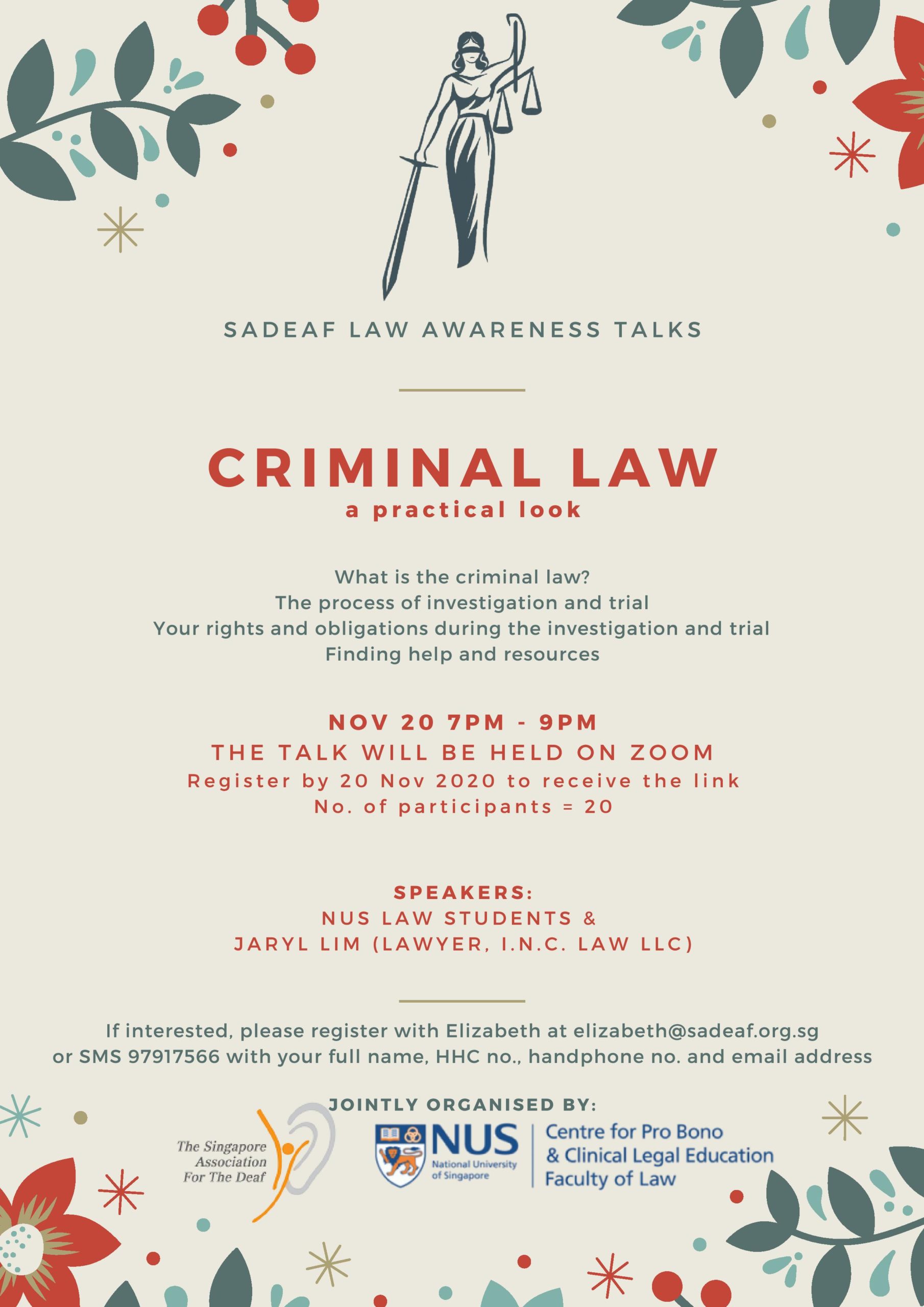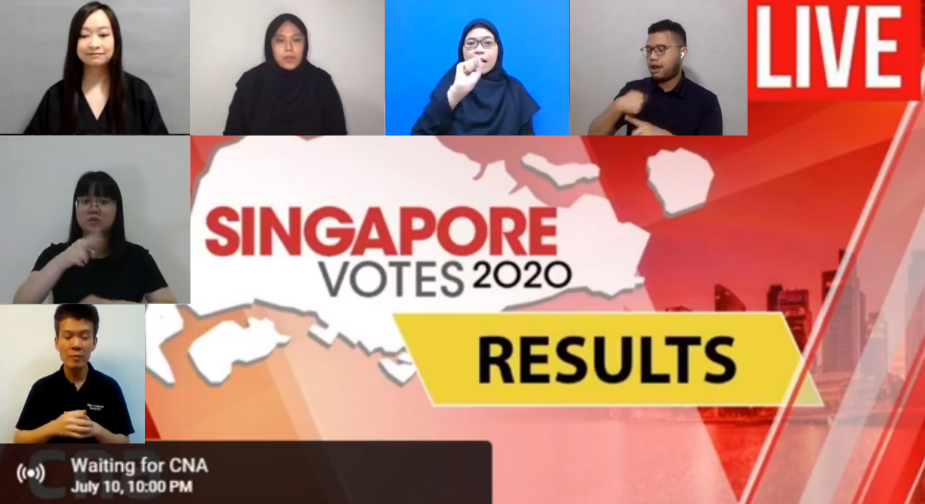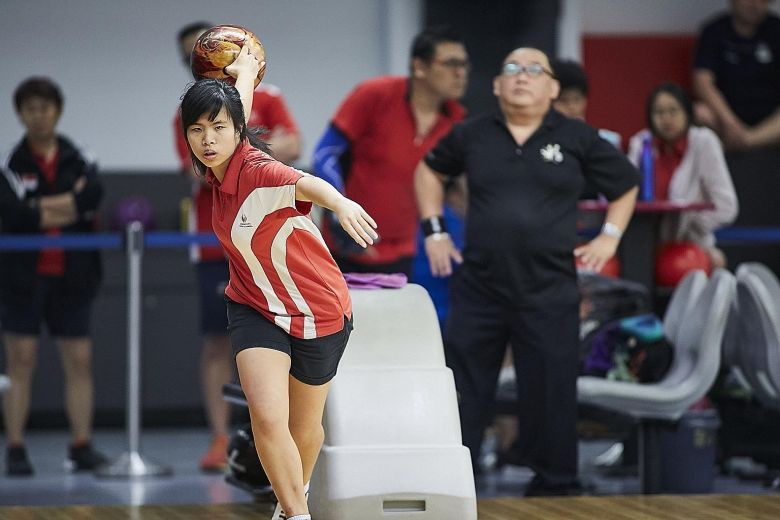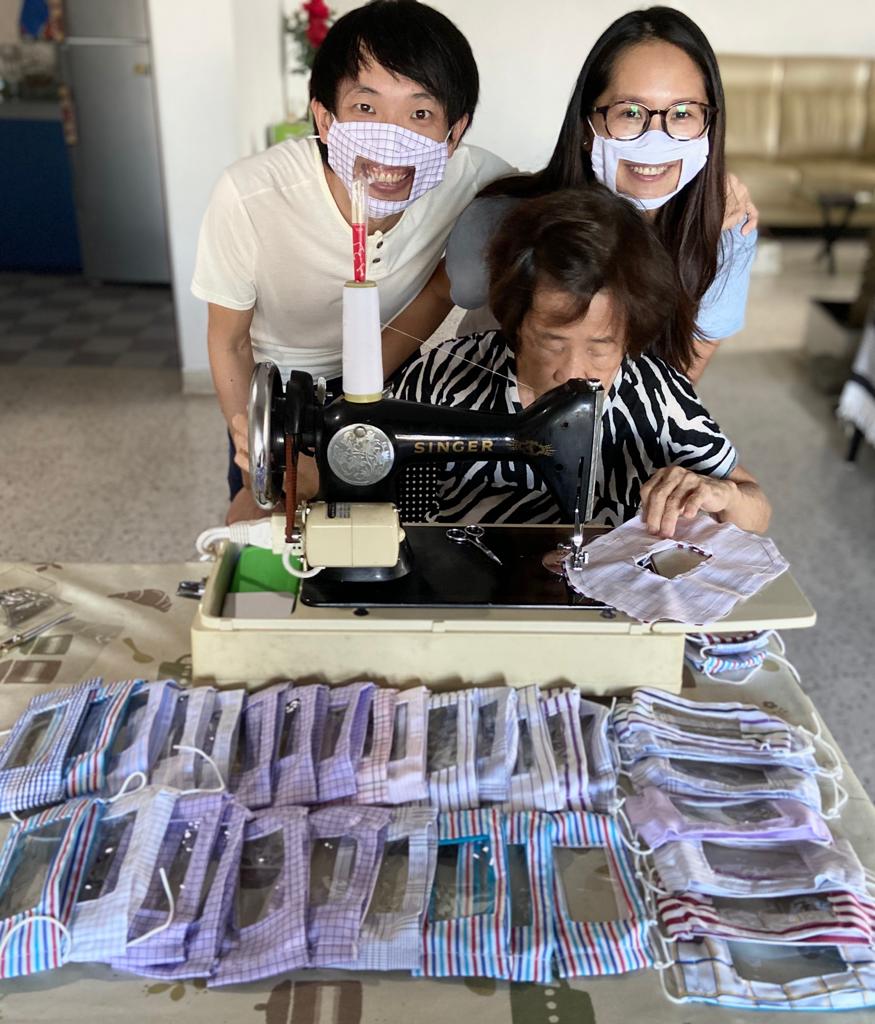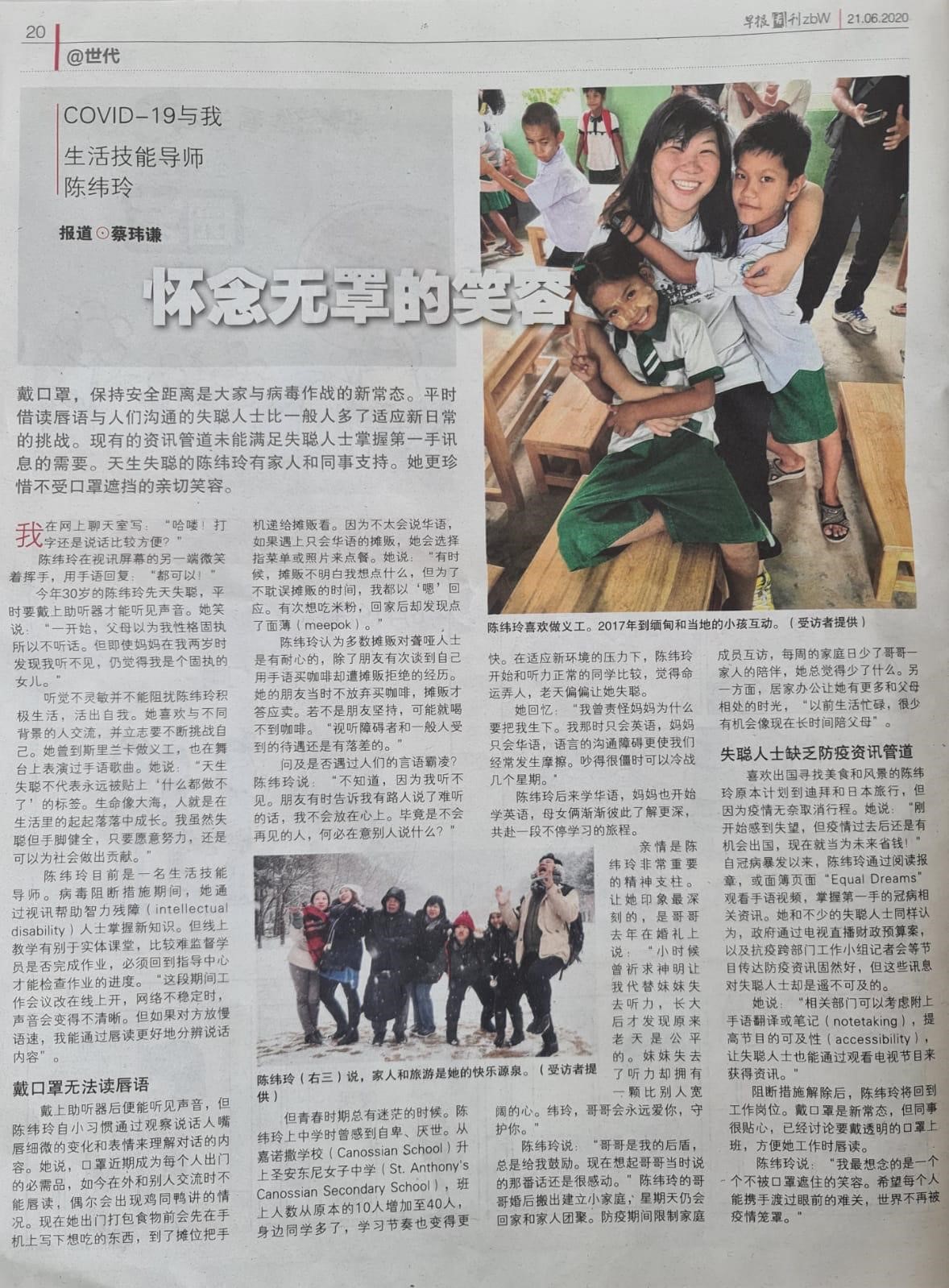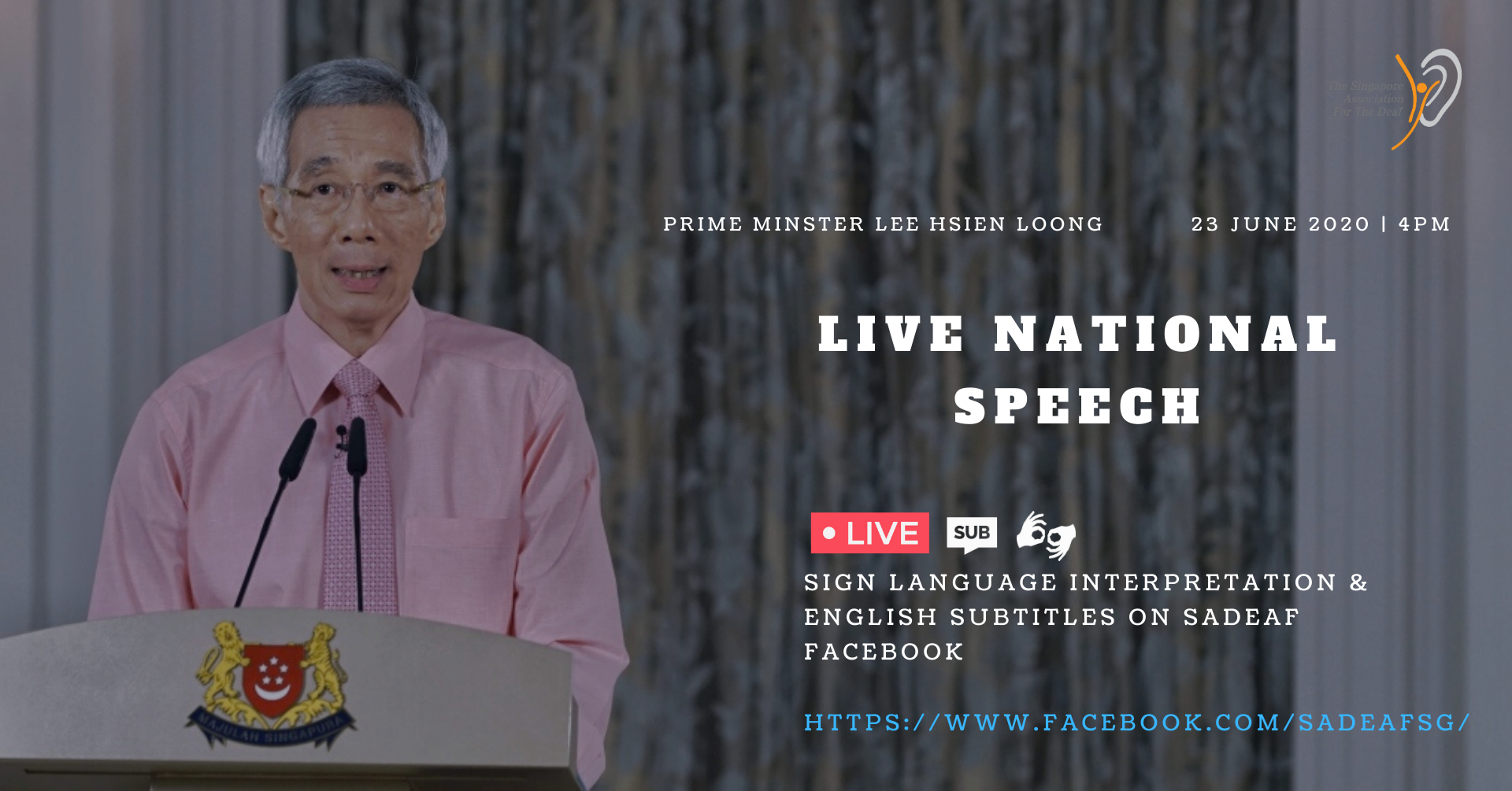SADeaf Family Day 2020 (River Safari)
Amidst the challenges posed by COVID-19, strong family bonding is becoming even more important during this season.
The Singapore Association For The Deaf encourages families of our clients to take respite from their daily lives and spend quality time together by participating in SADeaf Family Day to River Safari.
To Register (before 20 November 2020):
1) Indicate your interest on our sign-up sheet or contact Elizabeth (Elizabeth@sadeaf.org.sg/ 97917566).
2) A confirmation email will be sent to you upon successful registration for payment. You will receive the date for the collection of your tickets and goodie bag when payment is received.
*Please note that registration is an indication of your interest to participate in the Family and may not confirm you a ticket.
Payment
Please note that complimentary tickets are available only for registered clients of SADeaf.
Registred Clients: Free
Child (3-12 years old): $7
Adult (13-59 years old): $12
Senior Citizens (60 years old and above): $9
Face Mask Design Competition
To commemorate the special event, we are encouraging all clients to participate in the face mask design competition. The winning design will have their design produced and included in the goodie bags.
Please refer to the poster more information on the design competition and send in your designs to cs_enquiry@sadeaf.org.sg before 20 November 2020.

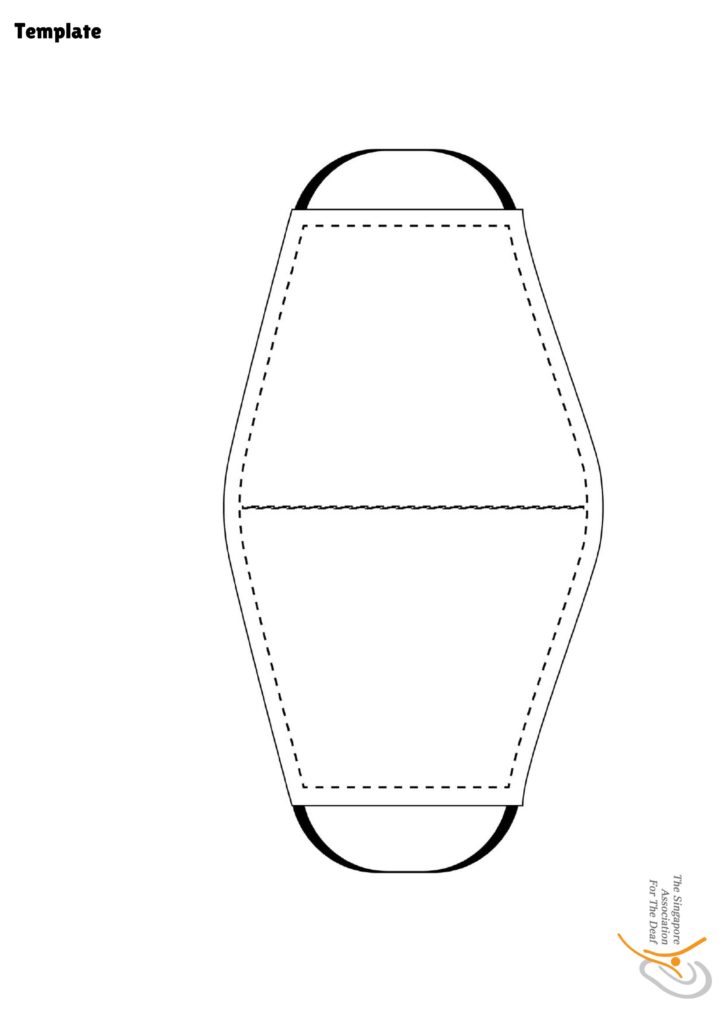
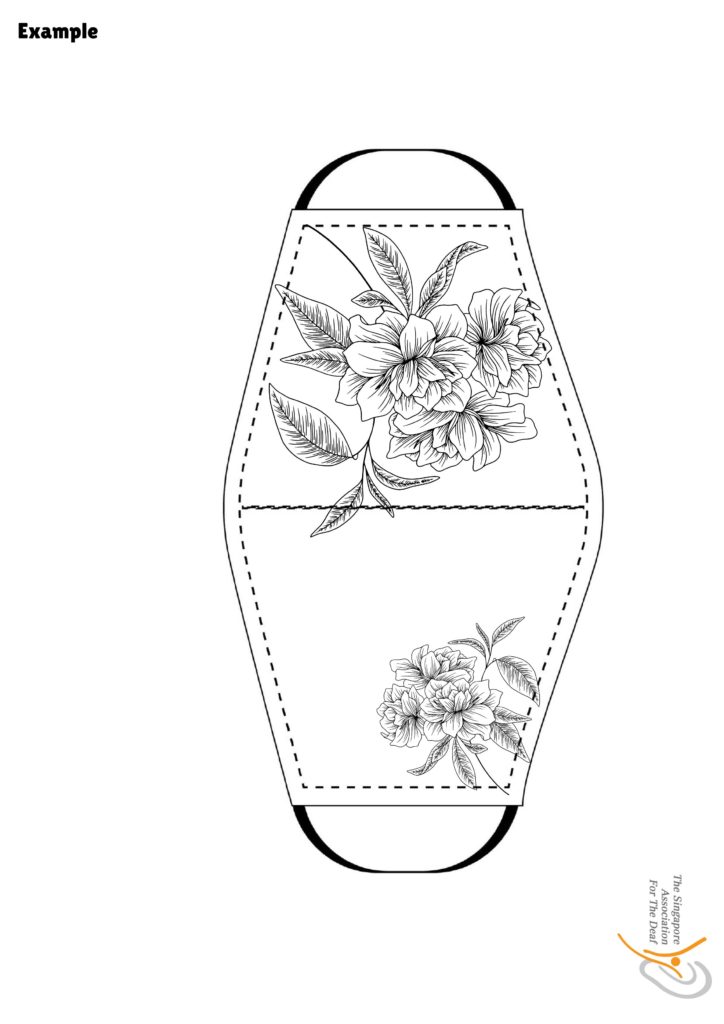
Law Awareness Talk – Criminal Law
Criminal Law: A Practical Look
– What is criminal law?
– The process of investigation and trial
– Your rights and obligations during the investigation and trial
– Finding help and resources
20 November, 7pm – 9pm
The talk will be held on Zoom.
Register by 20 Nov 2020 to receive the link.
Number of participants: 20
Speakers: NUS law students and Jaryl Lim (lawyer, I.N.C. Law LLC)
If interested, please register with Elizabeth at elizabeth@sadeaf.org.sg or SMS 97917566 with your full name, Hearing Help Card number, handphone number and email address. If you need access services such as a notetaker, do indicate too.
Or Sign up: https://forms.gle/gYBKAvvcLbVYstoC9
Jointly organised by NUS Centre for Pro Bono and Clinical Legal Education, Faculty of Law, and SADeaf.
Thank you, and see you there!
Big strides made to accommodate deaf, hard-of-hearing community
The Singapore Association For The Deaf (SADeaf) replies to a Straits Times forum letter on accessibility to information for the community during the recent elections.
SADeaf had provided sign language interpretation and note-taking on our own media platforms to accompany the election-related broadcasts on TV, including the marathon 7-hour election results/analysis.
This was a first for us, and we will continue to advocate for improved accessibility for future national events.
Read more here: https://www.straitstimes.com/forum/forum-big-strides-made-to-accommodate-deaf-hard-of-hearing-community
Student-athletes score winning marks in IB exams
Kimberly Quek, the winner of the Outstanding Deaf Student (Tertiary Education) Award 2019, scored 40 out of 45 for her International Baccalaureate (IB) results.
LESSONS FROM BOWLING
“Bowling is like life itself because there will always be things out of my control. What is important is to take things in my stride and keep trying until I succeed, as well as celebrate the little successes such as getting a strike.”
MS KIMBERLY QUEK, on how the sport has taught her resilience, in the face of uncertainties.
Read more: https://www.straitstimes.com/singapore/education/student-athletes-score-winning-marks-in-ib-exams
Also read a short feature on Kimberly on page 6 of our latest signal newsletter: https://sadeaf.org.sg/news-media/newsletter/
#HerWorldHerStory: This Artist Doesn’t Let Her Deafness Affect Her Passion For The Arts
Remember the article on “Accessibility needs for a Deaf-friendly show“? Meet the Artist behind the beautiful drawings!

Chen Ziyue was featured in June’s issue of #HerWorldHerStory for her passion for the Arts.
“Growing up was tough because I was often left out of conversations. I was diagnosed with profound hearing loss in both ears when I was two and a half years old. I first studied at Canossian School (then Canossian School for the Hearing Impaired). When I was nine, my late mother transferred me to St. Anthony’s Canossian Primary School. It was a big change going to a mainstream school. But my mum wanted me to learn survival skills that would help me function independently in society.
As a child, art became my “escape” from a confusing world, not being able to understand others, and vice versa. The late American author Helen Keller who was deaf and blind once said blindness cuts us off from things, but deafness cuts us off from people.
Drawing and playing with art helped me to forget the frustration of my struggles with verbal communication. It also helped me express my emotions.
“Drawing helped me forget the frustrations of my struggles”
I’ve been a freelance artist-illustrator for mostly children’s books since graduating from Ringling College of Art and Design (RCAD) in Florida in 2013.
The most recent book I worked on is How Women Won the Vote by Susan Campbell Bartoletti, published by HarperCollins. I now see myself as an equal to others. Living overseas alone made me more independent, and more aware of my identity as a deaf person. It was one of the best experiences I’ve had.
I hope the arts scene and disability inclusiveness will continue to grow…it’s promising to know that someone like me has a fair chance to work on my art. My wish is to work on a book to tell my story… I haven’t been able to finish illustrating my feelings on my mum’s passing but it’s something that I’m working on.”
– Published in Her World’s June issue
Also watch the Deaf “Deaf Entrepreneur – Chen Ziyue”
Don’t Mask your Smile – Masks for a cause
COVID-19 and the Deaf Community
The COVID-19 pandemic has made the wearing of masks an everyday ritual before you leave the house. Wearing of masks can prevent the spread of the virus. What’s more, the wearing and sight of the mask is a symbol of upholding hygienic behaviour such as not touching your face, avoiding crowds and practising social distance.
This norm has presented a new challenge to the Deaf and Hard-of-Hearing community all over the world. Wearing of face masks hides one’s mouth. Although only 30 to 45 percent of the English language can be understood through lip reading, wearing of masks completely removes any visual cues that would be of assistance. For sign language users, morphemes which involve the mouth as their primary articulator are masked as well. As a minority group, the Deaf and Hard-of-Hearing community laments at the world designed with hearing people in mind.
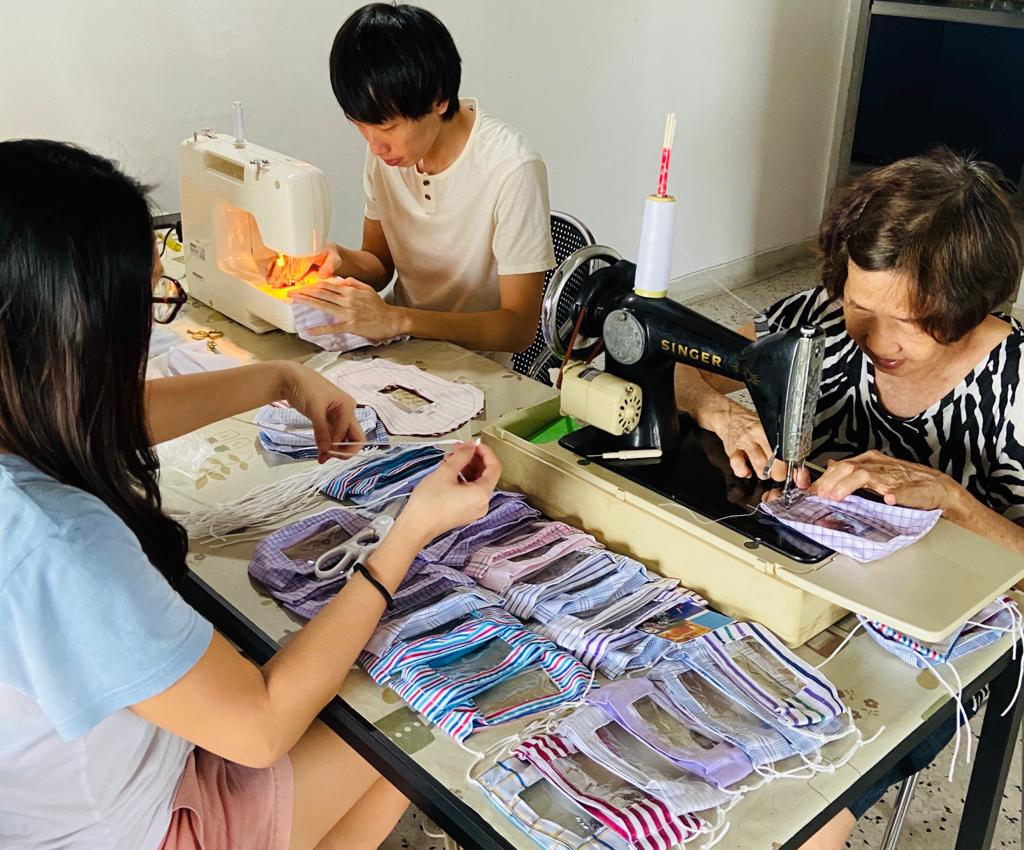
With the Deaf and Hard-of-Hearing community in mind, Oliver and his family set up The Simple Deed, a ground-up initiative to produce clear masks to benefit the Deaf and Hard-of-Hearing community.
Conceptualisation & Making
During one of the volunteering sessions with the elderly, Oliver and his wife realised that they had difficulties communicating with the seniors. After doing some research online, he found the solution to making clear masks.
With an old sewing machine and guidance from Oliver’s mother, the family embarked on the project despite him and his wife having no experience in masking masks.
The project has since been a success – volunteers and organisations have donated materials and time to support the cause. More than 150 masks have been donated to SADeaf and now being distributed to family members of Deaf and Hard-of-Hearing clients as well as staff working with the community.
Oliver has started also started the Don’t Mask Your Smile – Masks for A Cause to raise funds to support SADeaf and our mask distribution efforts.
If you wish to support the cause, drop them a message on their Facebook Page or simply make a donation!
Tips to Prevent the Clear Mask from Fogging Up
Dumpling Festival 2020
25 June 2020 – The Dumpling Festival (also known as Dragon Boat Festival or 端午节 “Duan Wu Jie”) is traditionally celebrated on the fifth day of the fifth month of the Chinese lunar calendar.

The best-known legend of the celebration, is the commemoration of 屈原 “Qu Yuan”, a third-century poet and patriotic statesman during China’s Warring States period (475-221 BC). Qu Yuan committed suicide in Miluo River when the war was lost. Loved and respected by the people, the locals paddled their boats up and down the river, hitting the water with their paddles and beating drums to scare evil spirits away. They also threw lumps of rice into the river to feed the fish so that they would not eat Qu Yuan’s body.
In Singapore, the Dumpling Festival is of course, all about the food. Do a quick search on the internet about the Dumpling Festival in Singapore and you will find listicles of the best Rice Dumplings to savour in Singapore.
In order to bring the food and this festive cheer to the Deaf community, Social Group of the Deaf (SGD) came up with a simple Facebook game to engage with the community.

Spot 5 differences! Answers revealed below.
Participants were asked to submit the answers via Facebook Messenger and the top three winners were awarded Rice Dumplings from the famous Kim Choo (Joo Chiat) stall.
Here are the winners!

1st Prize is Carol Tan | 2nd Prize is Ee Wun | 3rd prize is Hui Keng.
The prizes were presented by Ms Tay Lay Hong, SGD committee member, on behalf of Ms Amy Ho, Chairperson of SGD.
To all participants, the SGD Committee would like to say a big thank you! Although we are unable to celebrate this festive occasion together due to the COVID-19 situation, we hope this mini-game brought you joy while staying at home. Stay tuned to our Facebook page for more games and activities!
Signs for COVID-19 related words in Singapore Sign Language
In view of the Covid-19 situation, it is important to ensure that Deaf people who are sign language users receive information in a timely and accurate manner. Because of the coronavirus crisis, many words and phrases which are new to the general public, including the Deaf community, have now become familiar to all of us. However, some of these words and phrases do not have formal or widely used signs yet, so SADeaf is pleased to present some suggestions on how these can be signed.
This initiative was headed by SADeaf’s Sign Language Instructors sub-committee and Deaf Access Service department.
Missing the Smile Behind the Masks
https://www.zaobao.com.sg/NEWS/FUKAN/OTHERS/STORY20200621-1062778
Mask wearing and safe distancing is the new norm against COVID-19. Deaf Individuals who depend on lip-reading are presented with an additional challenge in their daily lives. Our current media and information channels are also unable to effectively provide first-hand information to the Deaf and Hard-of-Hearing community. Tan Wei Ling, born deaf, has the support of her family and colleagues. She appreciates the warm smile not hidden by the masks.
I asked on an online chat, “Hello! Do you prefer typing or speaking?”
Tan Wei Ling smiled and waved from the screen. She replied in Sign Language, “Either is fine!”
Tan Wei Ling, 30 years old, is born deaf. She wears hearing aids to enable her to hear sounds. Wei Ling cheerfully narrated, “In the beginning, my parents thought that I was stubborn and disobedient. But even after my mother found that I had hearing loss, when I was two, she still thought I was a stubborn daughter.”
Hearing loss did not prevent Wei Ling from leading an active life. She enjoys interacting with people from all walks of life and is determined to constantly challenge herself. Once during an overseas community involvement programme in Sri Lanka, she performed song-signing on stage. She said, “Being born deaf is not a label that I am ‘unable to do anything’. Just like the waves of an ocean, there are ups and downs in our lives that help us to grow. I may be Deaf but I am not disabled; as long as I am willing, I can still contribute to society.”
Tan Wei Ling works as a Lifeskills Coach. During the Circuit Breaker, she continued teaching her trainees with intellectual disability using online video conferencing software. However, online learning is different from classroom learning. It was difficult to supervise the trainees’ work or progress and she could only do so when they return to the centre. “During this period, work meetings have transited online. When the network is unstable, speech becomes unclear. But if other party could speak slower, I can lip-read to better figure what they are saying.
𝐔𝐧𝐚𝐛𝐥𝐞 𝐭𝐨 𝐥𝐢𝐩-𝐫𝐞𝐚𝐝 𝐰𝐢𝐭𝐡 𝐦𝐚𝐬𝐤𝐬
Though the hearing aid helps to pick up sounds, Wei Ling communicates with others through observing their mouth movement and facial expression, a practice she adopted from young. As masks are now mandatory, she is unable to read lips which have led to communication breakdowns. Nowadays, she would type down her food order and show it to the stall owner when ordering food. As she is not well-versed in Chinese, she would point on the menu or pictures when ordering from a Chinese-speaking stall owner. She lamented, “Sometimes stall owners don’t understand my order. But not waste the time of stall owner’s time, I would just agree to whatever they say. Once, I ordered Beehoon only to find out that it was Meepok when I reached home.”
Wei Ling believes that most stall owners are patient towards the deaf. However, there are exceptions. She recalls a negative experience where her friend was refused a coffee order when the order was placed using sign language. Her friend insisted on the order until the stall owner relented. If not for his or her persistence, he or she would not have been able to get the coffee. “Individuals with visual impairment and hearing loss do receive differential treatments.”
When asked if she had been mocked by a passer-by, Tan Wei Ling replied, “I don’t know, because I can’t hear them. Even when my friends inform me of the ugly comments made, I wouldn’t take them to heart. After all, I won’t meet the person again, why bother?”
There were times where Wei Ling felt lost while growing up. During her secondary school days, she felt inferior and disgruntled. When she advanced from Canossian School to St Anthony’s Canossian Secondary School, her class size increased from 10 to 40 students. There were more students and the pace of learning increased. The pressure to adapt to the new environment caused Wei Ling to compare herself with her hearing peers. She felt unfair that she was deaf.
She recalled, “I once blamed my mother for giving birth to me. Back then, I only knew English there while my mother only knew Chinese. The language barrier was a cause of frequent conflict and friction. Sometimes, we would end up ignoring each other for a few weeks”.
Wei Ling later picked up Chinese, while her mother started learning English. They started to understand each other better and embarked on a journey of lifelong learning.
Family is an important support pillar for Wei Ling. A memorable incident was when her brother spoke at his wedding last year. “When I was a kid, I prayed to God to let me take my sister’s place. That I would be deaf instead of her. Now, I realise that God is fair. My sister lost her hearing but she has a heart bigger than others. Wei Ling, your brother will forever love you and protect you.”
Tan Wei Ling said, “My brother backs me up and constantly encourages me. Now remembering his words I still feel touched.” Wei Ling’s brother had his own place after his marriage and would visit her family every Sunday. During the circuit breaker, family members from different households were restricted from visiting each other. Something was missing without the brother’s presence. On the other hand, working from home had allowed her to spend more time with her parents, “Before, I rarely have the opportunity to spend time with my parents like this.”
𝐃𝐞𝐚𝐟 𝐢𝐧𝐝𝐢𝐯𝐢𝐝𝐮𝐚𝐥𝐬 𝐥𝐚𝐜𝐤 𝐚𝐜𝐜𝐞𝐬𝐬 𝐭𝐨 𝐂𝐎𝐕𝐈𝐃-𝟏𝟗 𝐮𝐩𝐝𝐚𝐭𝐞𝐬
Wei Ling is an avid traveller who enjoys savouring local delicacies and sights. Her plans to travel to Dubai and Japan this year was cancelled due to the pandemic. She said, “Initially I was disappointed, but come to think of it, I see this as an opportunity to save for future travels when the pandemic has passed!” Since the COVID-19 situation, Tan Wei Ling gets first-hand updates from reading news articles and watching sign language videos posted on “Equal Dreams” Facebook page. Like many other deaf individuals, they agree that live broadcast of the government budget and updates by the Multi-Ministry Taskforce on COVID-19 are good, but this information remains inaccessible to the deaf.
She said, “Relevant agencies can consider including sign language interpretation or notetaking in order to increase the accessibility of these broadcasts. This will allow Deaf and Hard-of-Hearing individuals to be timely informed of the latest updates.
When the circuit breaker measures are lifted, Wei Ling will to her workplace. Mask wearing is necessary and her thoughtful colleagues are exploring to wear transparent masks to enable her to lip-read.
Wei Ling said, “What is miss most, is the uncovered smiles. I hope everyone can unite to overcome the challenge, and the world needs no longer be consumed by this pandemic.”
Translated by SADeaf Staff Joan Peh & Teo Zhi Xiong
Live National Speech: With Sign Language Interpretation & Notetaking
Prime Minister Lee Hsien Loong is scheduled to address the country at 4pm on June 23.
Live Sign Language interpretation & notetaking will be provided by SADeaf on: https://www.facebook.com/SADeafSG/
Notetaking-only feed (ie. text-only feed for deafblind, blind-deaf and others): https://tinyurl.com/pmlee23jun

